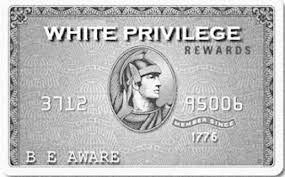 Reparations for slavery is becoming part of the “progressive” full Monty that Democratic presidential candidates must endorse. It’s a terrible idea.
Reparations for slavery is becoming part of the “progressive” full Monty that Democratic presidential candidates must endorse. It’s a terrible idea.
Recently The Daily Show’s Trevor Noah acknowledged the issue’s complications, but waved them away, as mere details that can be worked out. An over-used cliché that I really hate is “the devil is in the detail.”

Even if reparations for slavery were an appealing idea, it falls apart the moment you consider seriously the problem of who, exactly, to pay. There’s nobody who’s totally descended from slaves. Slavery ended around six or seven generations ago. For any living black American, the direct ancestors from that era would number dozens to hundreds. Surely not all were enslaved. Many came here later from other countries. Many were white. Okay, maybe you could (arbitrarily) draw a line at 50% slave ancestry. Or some other number. But nobody can document their whole family tree that far back anyway. Any such program would be an implementation nightmare.
Or would you propose to sidestep this morass and simply base payments on skin color? The darker, the bigger the payment? Sounds like a great idea, no?
Slavery was a horrible crime (as I’ve written:http://www.fsrcoin.com/Slavery.htm). But history is full of crimes.

It’s a fundamental precept of justice that wrongs should be redressed among victims and perpetrators — not others. It’s a principle we fallible humans too often violate. As in collective punishments and vengeance. The sins of the fathers visited upon the sons. If a Xendari has committed an atrocity against your people, then by all means punish him — but do not exact revenge by committing a new crime against other, innocent Xendaris. That’s no justice. So too, taxpayers who did no enslaving shouldn’t be made to pay compensation. Let alone to people who were not themselves enslaved.
It is true that slavery has had lasting impacts, a key factor in black Americans’ lower average socio-economic standing. But can one say that any particular person today would be better off had no ancestors been enslaved? Some surely would be worse off. Many U.S. descendants of slaves are doing very well. But had history been different, they would not exist today at all, making any such considerations quintessentially meaningless.

Two wrongs don’t make a right. If we really think slavery’s reverberations still cause disadvantage to some Americans, then the proper answer is to create public policies that remove that disadvantage. Basically, to create a more just society overall. Which indeed we’ve been working at (though far from perfecting). “Affirmative action” is a case in point. Never mind all the issues affirmative action raises; but hasn’t this been reparations, by another name?
A better way to make reparation for the disadvantage suffered by many African-Americans would be to at least stop aggravating it with sub-standard education. Public schools in poor/non-white neighborhoods are often disgraceful. Yet Democrats calling for reparations mostly refuse to face up to this huge issue, in hock to teachers’ unions and ideologically opposing school choice to give those kids at least some chance to escape dysfunctional public schools.

Furthermore, if Democrats push this issue it would feed every negative stereotype about them. As coddling some interest groups at the expense of others, and even of the nation as a whole. Defying what many people consider common sense. And it would be a huge distraction from what really should be the issues for 2020 – all the ways Trumpism is degrading America.

